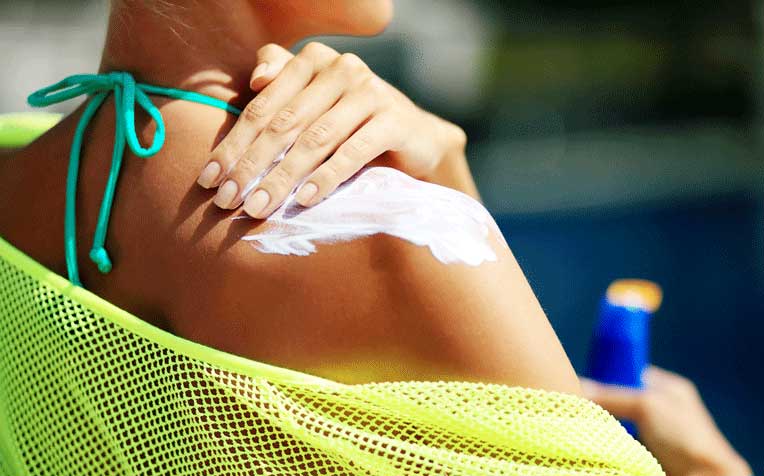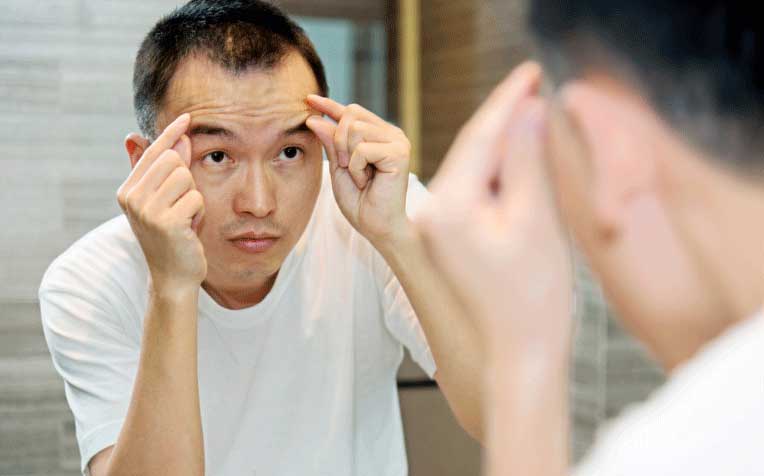
Premature skin ageing can be prevented by applying sunblock everyday.
In your 20s, you can start using a moisturiser with antioxidant ingredients
A healthy lifestyle that includes a balanced diet, sufficient physical exercise and enough sleep promotes skin health. So does a good daily skincare routine that includes cleansing, moisturising and the use of a broad spectrum sunscreen with a minimal SPF 15 to 30.
“Avoidance of sun is the most effective way to avoid UV exposure, followed by protective clothing and using an umbrella and hats,” says Dr Pang Shiu Ming, Senior Consultant at the Department of Dermatology at Singapore General Hospital (SGH), a member of the SingHealth group.
Moisturise
If you are in your 20s, your skin has a good cell turnover and collagen production. To prevent skin damage at this age, you can start using a moisturiser that contains antioxidant ingredients such as vitamin C. These antioxidant products can protect the skin against environmental damage.
Retinoids and alpha hydroxy acids (AHA)
You can also include a prescription retinoid or over-the-counter retinol cream in your nightly skin care routine. Retinoids, vitamin A derivatives such as tretinoin, help improve skin appearance by speeding up cell turnover and boosting collagen production. They can also unclog pores and lighten brown spots.
Alpha hydroxy acids (AHA) found in some skin creams can also help with cell turnover and collagen production, but to a lesser extent that prescription retinoids.
“A retinoid cream should be introduced slowly since it can cause redness and dryness in the first few weeks of use,” says Dr Pang. “Pregnant and breastfeeding women should not use a retinoid cream.”
Can collagen drinks boost the collagen levels in your skin or boost collagen production?
“No they can’t,” says Dr Pang. “Your body will simply break down the collagen contained in these drinks and use it for energy. The collagen will not magically transfer to your dermis, or benefit the skin in any way.” You should use a retinoid cream instead to boost collagen production.
Lifestyle tips to prevent wrinkles and early skin ageing
- Sleep on your back. Sleeping on the same side every night can cause fine lines and wrinkles to form on that side of your face. Vary your sleeping position, or sleep on your back if you can.
- Use a good moisturiser. Though drinking enough fluids is good for general health, dermatologists know that good skin moisture is really achieved at the skin barrier level. Moisturisers will trap water content in the skin so cells stay plump and hydrated. This is key in keeping wrinkles at bay and yet often overlooked.
- Try to reduce stress in your life. Excessive frowning due to constant stress can cause lines to form on the forehead and between the eyebrows.
- If you wear spectacles, make sure your prescription is up-to-date. Constant frowning due to poor vision can also take its toll.
- Wear sunglasses. It can prevent UV damage to the delicate skin around your eyes and protect your eyes.
- Eat foods rich in antioxidants. Antioxidant foods help maintain a healthy skin which is better able to fight environmental damage. All types of berries, red bell peppers, and green tea are some foods that help promote skin health.
- Make a habit of applying sunscreen every morning, rain or shine. If you are spending a long time outdoors, reapply the sunscreen every two hours.
Click on the previous pages to read about the causes of skin ageing.
Ref: S13
Contributed by
















 Get it on Google Play
Get it on Google Play